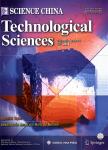CPSO-XGBoost segmented regression model for asphalt pavement deflection basin area prediction
CPSO-XGBoost segmented regression model for asphalt pavement deflection basin area prediction作者机构:School of MathematicsSoutheast UniversityNanjing 210096China School of Cyber Science&EngineeringSoutheast UniversityNanjing 210096China Yonsei Frontier LabYonsei UniversitySeoul 120-749Korea Research Institute of HighwayMinistry of TransportBeijing 100088China Intelligent Transportation System Research CenterSoutheast UniversityNanjing 210096China
出 版 物:《Science China(Technological Sciences)》 (中国科学(技术科学英文版))
年 卷 期:2022年第65卷第7期
页 面:1470-1481页
核心收录:
学科分类:08[工学] 0814[工学-土木工程] 082301[工学-道路与铁道工程] 0823[工学-交通运输工程]
基 金:supported by the National Key Research and Development Program of China (Grant No. 2020YFA0714300) the National Natural Science Foundation of China (Grant Nos. 61833005 and 62003084) the Natural Science Foundation of Jiangsu Province of China (Grant No.BK20200355)
主 题:FWD pavement management systems RIOHTrack deflection basin area CPSO XGBoost segmented regression model
摘 要:The use of non-destructive testing(NDT) equipment, such as the falling weight deflectometer(FWD), provides important estimates of road health and helps to optimize road management regimes. However, periodic road testing and post-processing of the collected data are cumbersome and require much expertise, a considerable amount of time, money, and other resources. This study attempts to develop a reliable prediction method for estimating the deflection basin area of different asphalt pavements using road temperature, load time, and load pressure as main characteristics. The data are obtained from 19 kinds of asphalt pavements on a 2.038-km-long full-scale fleld accelerated pavement testing track named RIOHTrack(Research Institute of Highway Track) in Tongzhou, Beijing. In addition, a chaotic particle swarm algorithm(CPSO) and a segmented regression strategy are proposed in this paper to optimize the XGBoost model. The experiment results of the proposed method are compared with those of classical machine learning algorithms and achieve an average of mean square error and mean absolute error respectively by 5.80 and *** experiments demonstrate the superiority of the XGBoost algorithm over classical machine learning methods in dealing with nonlinear problems in road engineering. Signiflcantly, the method can reduce the frequency of deflection tests without affecting its estimation accuracy, which is a promising alternative way to facilitate the rapid assessment of pavement conditions.



